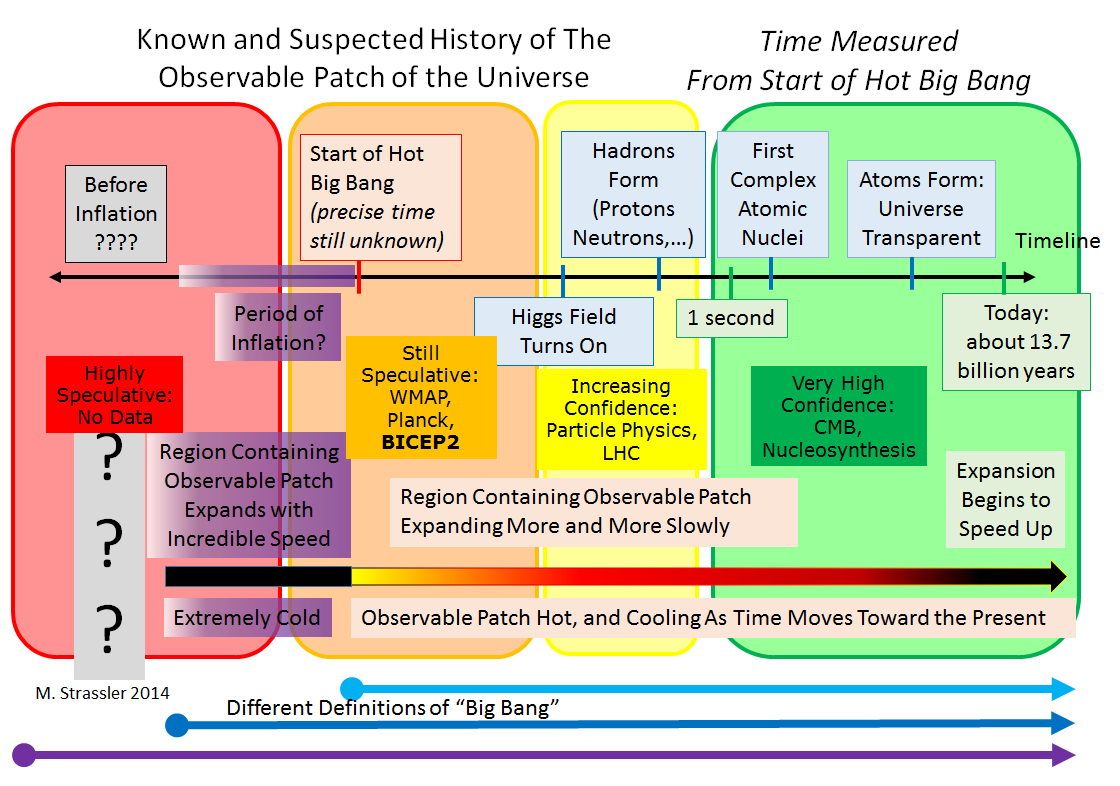@Relates
Roger, I think you need to review the more popular timelines proposed for the Big Bang. This is one of those rare times when the Wiki discussion on the Big Bang is not up to snuff. I had to go to a physics page to get the necessary level of detail and clarity:
Planck Epoch (or Planck Era), from zero to approximately 10-43 seconds (1 Planck Time):
This is the closest that current physics can get to the absolute beginning of time, and very little can be known about this period…
Grand Unification Epoch, from 10–43 seconds to 10–36 seconds:
The force of gravity separates from the other fundamental forces (which remain unified), and the earliest elementary particles (and antiparticles) begin to be created.
^^^^^^^^^^^^^^^^^^^^^^^^^^^^^^^^^^^^^^^^^^^^^^^^^^^^
Roger, if you consider quarks and gluons to be “matter”, then they only just start to appear in the post-Planck Epoch.
However, if matter is defined as protons, neutrons and electrons, it takes a little longer to get there, described below as appearing in the Quark Epoch:
^^^^^^^^^^^^^^^^^^^^^^^^^^^^^^^^^^^^^^^^^^^^^^^^^^^^
Inflationary Epoch, from 10–36 seconds to 10–32 seconds:
Triggered by the separation of the strong nuclear force, the universe undergoes an extremely rapid exponential expansion, known as cosmic inflation. The linear dimensions of the early universe increases during this period of a tiny fraction of a second by a factor of at least 1026 to around 10 centimetres (about the size of a grapefruit). The elementary particles remaining from the Grand Unification Epoch (a hot, dense quark-gluon plasma, sometimes known as “quark soup”) become distributed very thinly across the universe.
Electroweak Epoch, from 10–3[2] seconds to 10–12 seconds:
As the strong nuclear force separates from the other two, particle interactions create large numbers of exotic particles, including W and Z bosons and Higgs bosons (the Higgs field slows particles down and confers mass on them, allowing a universe made entirely out of radiation to support things that have mass).
Quark Epoch, from 10–12 seconds to 10–6 seconds:
Quarks, electrons and neutrinos form in large numbers as the universe cools off to below 10 quadrillion degrees, and the four fundamental forces assume their present forms. Quarks and antiquarks annihilate each other upon contact, but, in a process known as baryogenesis, a surplus of quarks (about one for every billion pairs) survives, which will ultimately combine to form matter.
[timeline truncated]

